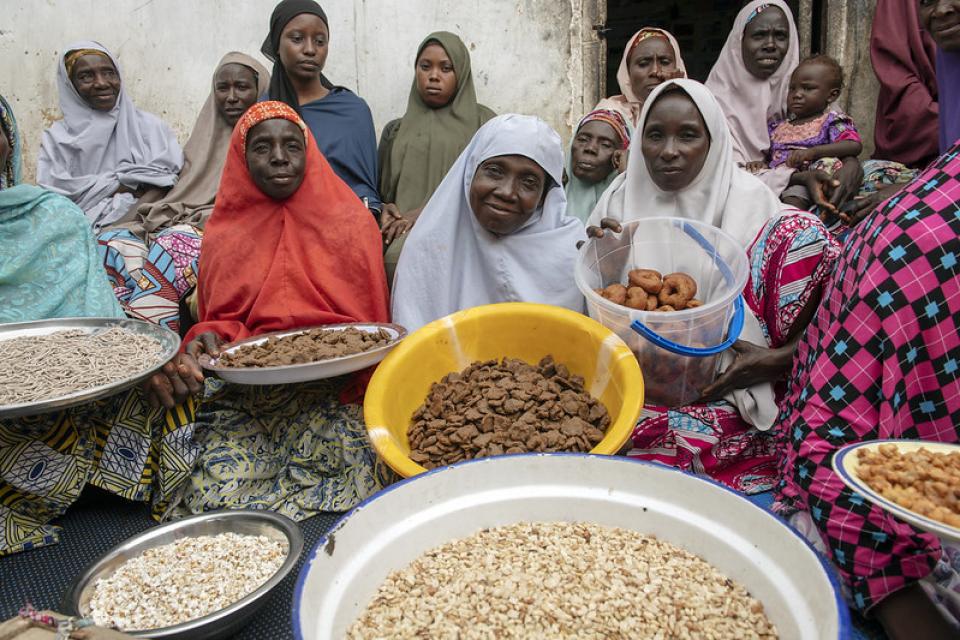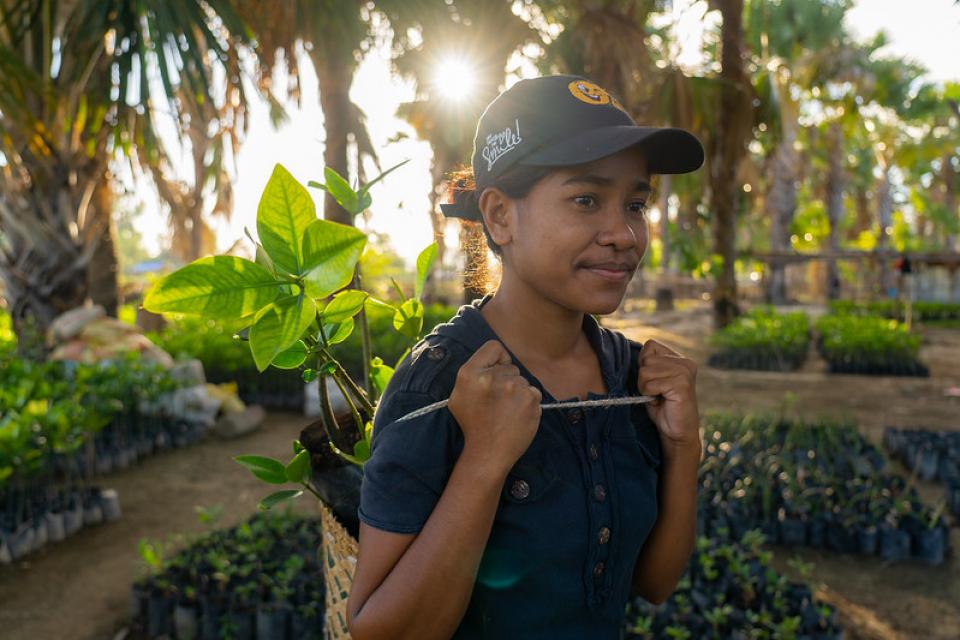Women and youth are transforming Africa’s food systems
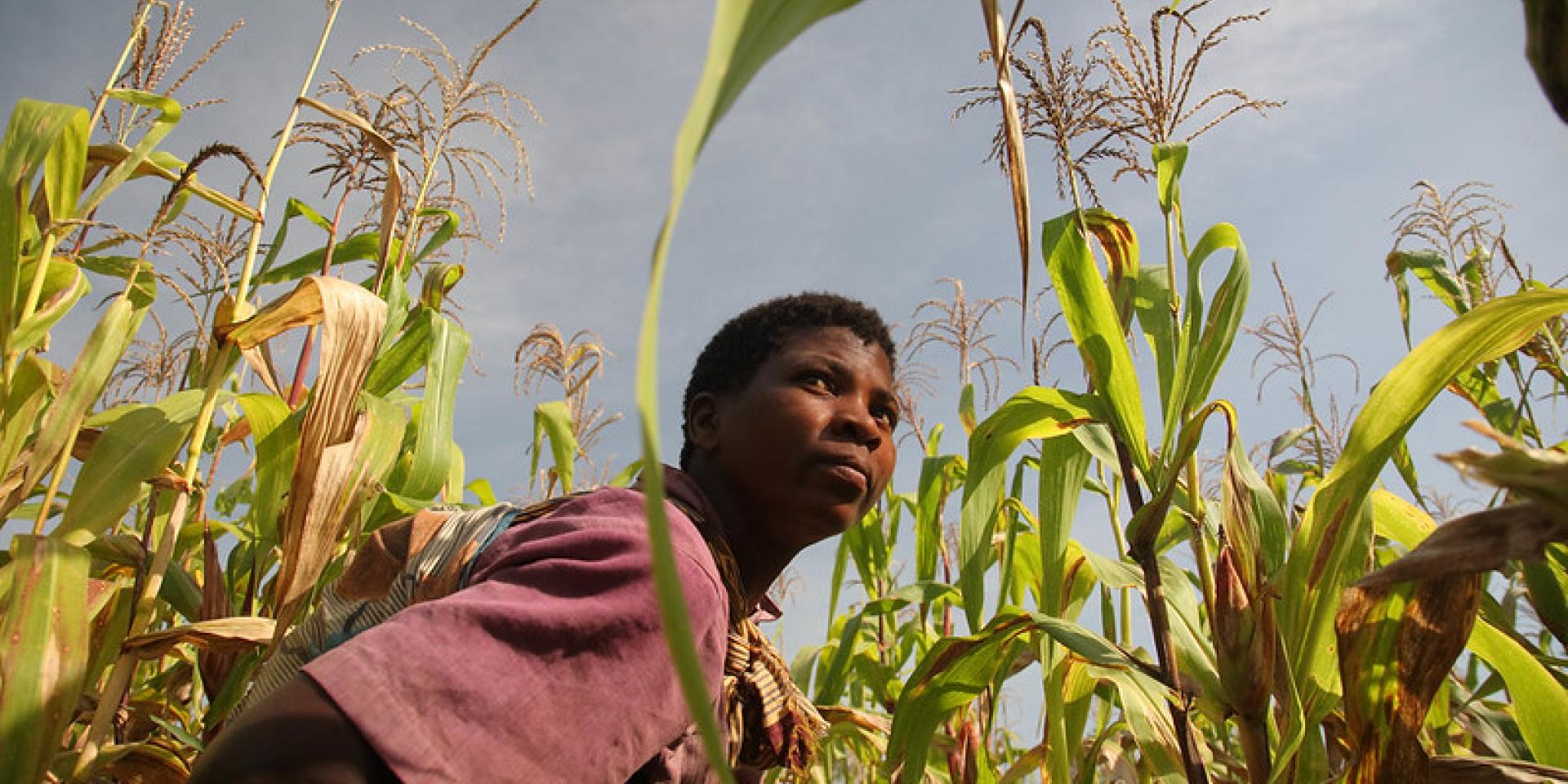 ILRI/Stevie Mann
ILRI/Stevie Mann
At the 2024 Africa Food Systems Forum in Kigali, participants discussed the critical role that women and youth play as frontline actors and innovators in the transformation of agrifood systems in the face of climate- and conflict-related stressors and shocks.
Shift the focus: change the systems, not the women
World leaders, investors, academia, youth agripreneurs, farmers’ organizations, and the private sector came together in Kigali as part of the 2024 Africa Food Systems Forum.
In a session that unpacked what it means to accelerate gender-transformative agrifood systems in Africa and beyond, with youth and women at the helm, CGIAR GENDER Impact Platform Director, Nicoline de Haan called for a fix of the systems that have continually failed the women. “We need to change our systems. We have spent so much time trying to change the women. It’s high time we focus on our systems,” said de Haan in her framing remarks.
The session was co-organized by the Platform together with Africa Agriculture Development Programme’s (CAADP) XP4 Gender Working Group, USAID’s Bureau for Resilience, Environment and Food Security (REFS), the Alliance of Bioversity International and CIAT (ABC) and International Development Enterprises (iDE).
Safina Mukagatete’s entrepreneurship is a practical example of the conference’s theme “Innovate, Accelerate and Scale: Delivering food systems transformation in a digital and climate era”. Mukagatete is changing lives through cultivating iron-rich beans. From her start as a grassroots NGO worker, Mukagatete is now a successful entrepreneur and Managing Director of Aggregator Trust Rwanda Ltd. She aggregates produce from 40,000 smallholder farmers across six districts in Eastern Rwanda. Her enterprise can store up to 7,000 tons of beans annually, servicing clients such as schools, local traders, and prisons. Mukagatete has expanded her reach to international markets, exporting to Oman and Canada.
Mukagatete acknowledged that initial support and training from a CGIAR program in 2018 was instrumental in getting her started to scale-up production and consumption of biofortified staple crops and foods in Rwanda.
Gracsious Maviza, a Gender and Migration Climate Security Scientist at ABC offered a compelling perspective on the intersection of gender, migration and climate security. Drawing on Mozambique as a case study, she emphasized how fragility and displacement affects food, land, and water systems. Maviza highlighted that men, like women, were vulnerable in conflict and fragile contexts, and warned against creating divisions that could undermine social cohesion and community peace. She pointed out that food systems and livelihoods often struggled to cope with the impacts of climate change, further exacerbating these vulnerabilities.
Youth voices share on-the-ground experiences
Young agripreneurs from Tanzania, Democratic Republic of Congo (DRC) and Kenya also joined the conversation, adding their experiences on entrepreneurship and innovation, skills building, financing, climate resilience and inclusive growth in agrifood systems. Their stories exemplify the role of technologies, youth-led innovation and partnerships in driving economic growth and reshaping the future of aquaculture.
Leonia Sahani is a dynamic young agripreneur from Luguruni, Dar es Salaam and who is engaged in value addition of cassava. Sahani’s goal is to generate income while transforming cassava into diverse, high-value products. She received specialised training from CGIAR’s International Institute of Tropical Agriculture (IITA) through the ENABLE-TAAT Project. Sahani accessed the latest varieties of cassava released by CGIAR researchers and partners. These varieties take a shorter time to mature and deliver improved yields. “Before, it took us two years to get seed for cassava. Now we have varieties like TZ 2, which only takes nine months to mature.” But for Sahani, one of her biggest challenges is in securing funds. “Most financial institutions do not know about the potential of cassava. So, we have to secure funds through small institutions.”
With the support of a WorldFish-certified specialist, Lwange Nyogole Josué, a 26-year tilapia and catfish farmer from South Kivu region in the Democratic Republic of the Congo developed a plan for a modern private hatchery in Bukavu. He established a fish farm to respond to local demand for high-quality fingerlings. The farm’s potential attracted interest from investors, leading to a profitable partnership aimed at scaling-up production. The partnership aims to produce between 10,000 and 15,000 tilapia annually, a significant step toward transforming South-Kivu’s aquaculture landscape.
Early in the session, de Haan highlighted the importance of taking youth seriously by investing in them and understanding them. She also emphasized the need to move fast. She urged participants to start finding solutions at scale and better targeting of these solutions because women and youth are not a homogenous group.
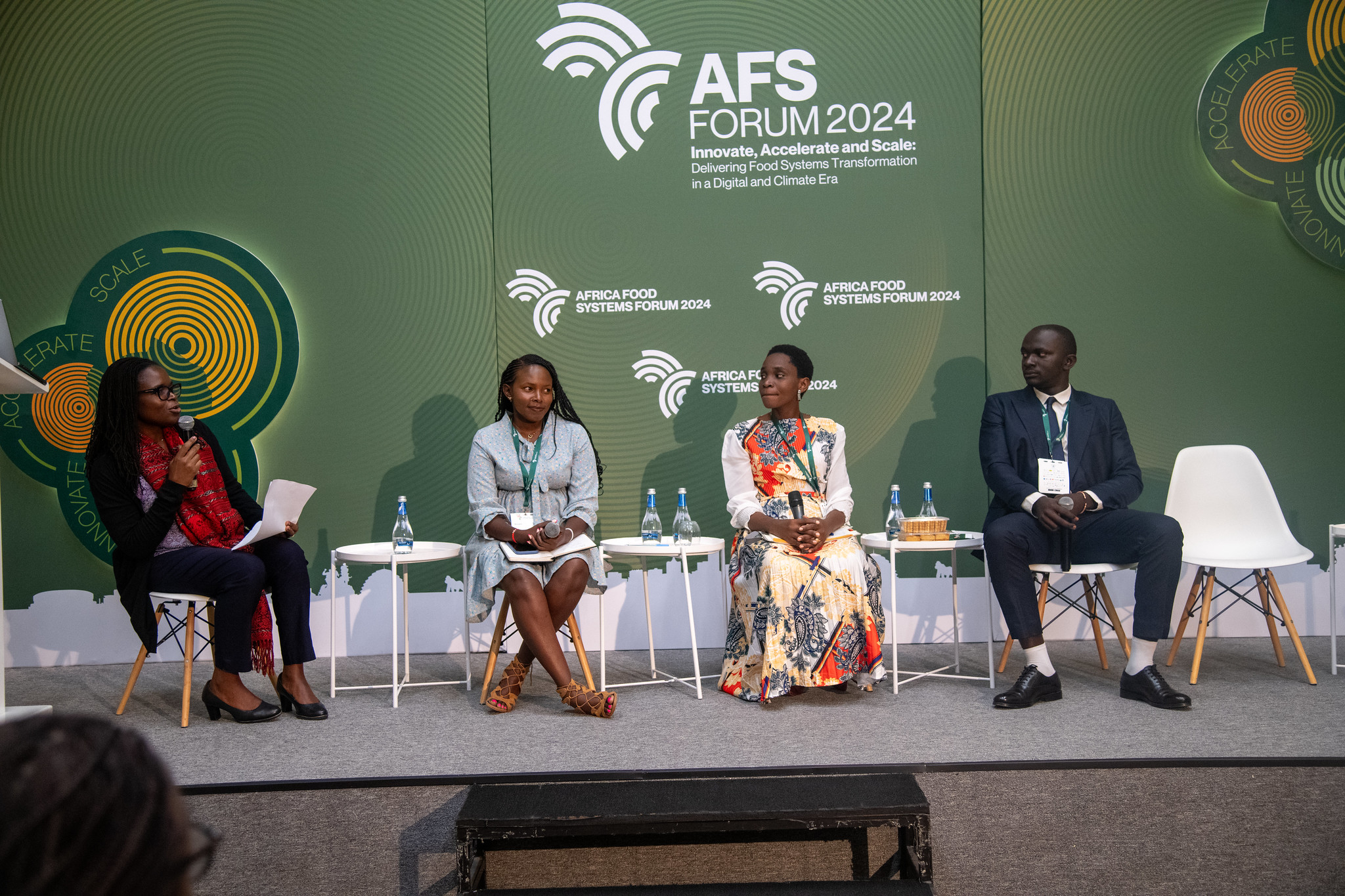
From left, Vivian Atakos moderating a panel discussion with young agripreneurs, Janet Toroitich (Kenya), Leonia Sahani (Tanzania) and Josue Lwange (DRC).
Expert conversations
Following these inspiring case study conversations, practitioners from iDE, CAADP XP4, FAO and ABC engaged in a panel discussion,
Silvestor Kalonge, iDE’s Country Manager for Zambia, highlighted the role of grassroots organizations and supportive policies in driving progress, reiterating the young farmers’ calls for the right policies to ensure they benefit fully from systems.
Mirjam Taapopi, representing the CAADP-XP4 Gender Working Group, followed by discussing the importance of integrating women-led and gender-inclusive innovations into policy frameworks, particularly the post-Malabo agenda. She advocated for setting quotas for women and youth in policy-making processes related to agricultural research and innovation. By prioritizing these groups, Taapopi argued, we could build more sustainable and resilient food systems.
Nomathemba Mhlanga, Agribusiness Officer at the UN FAO, detailed strategies for ensuring women benefit equally in food value chains, by providing guidance on sustainable practices and supporting skills development through, for instance, the FAO’s farmer field schools approach. In a typical farmer field school approach, a group of 20–25 farmers meets once a week in a local field setting and under the guidance of a trained facilitator. The approach provides a risk-free setting in which to discuss, dissect, modify and experiment with new agricultural management ideas. In groups of five they observe and compare two plots over the course of an entire cropping season.
The challenge is significant, but success is achievable
In her closing remarks, Aslihan Kes, USAID’s Senior Gender Advisor at REFS, reaffirmed the importance of committing to tackling the intertwined issues of food security and climate change. She highlighted three critical areas from the discussions: expanding access to technology paired with social innovations, improving financial services and insurance for vulnerable groups, and embracing gender-transformative approaches to address systemic gaps.
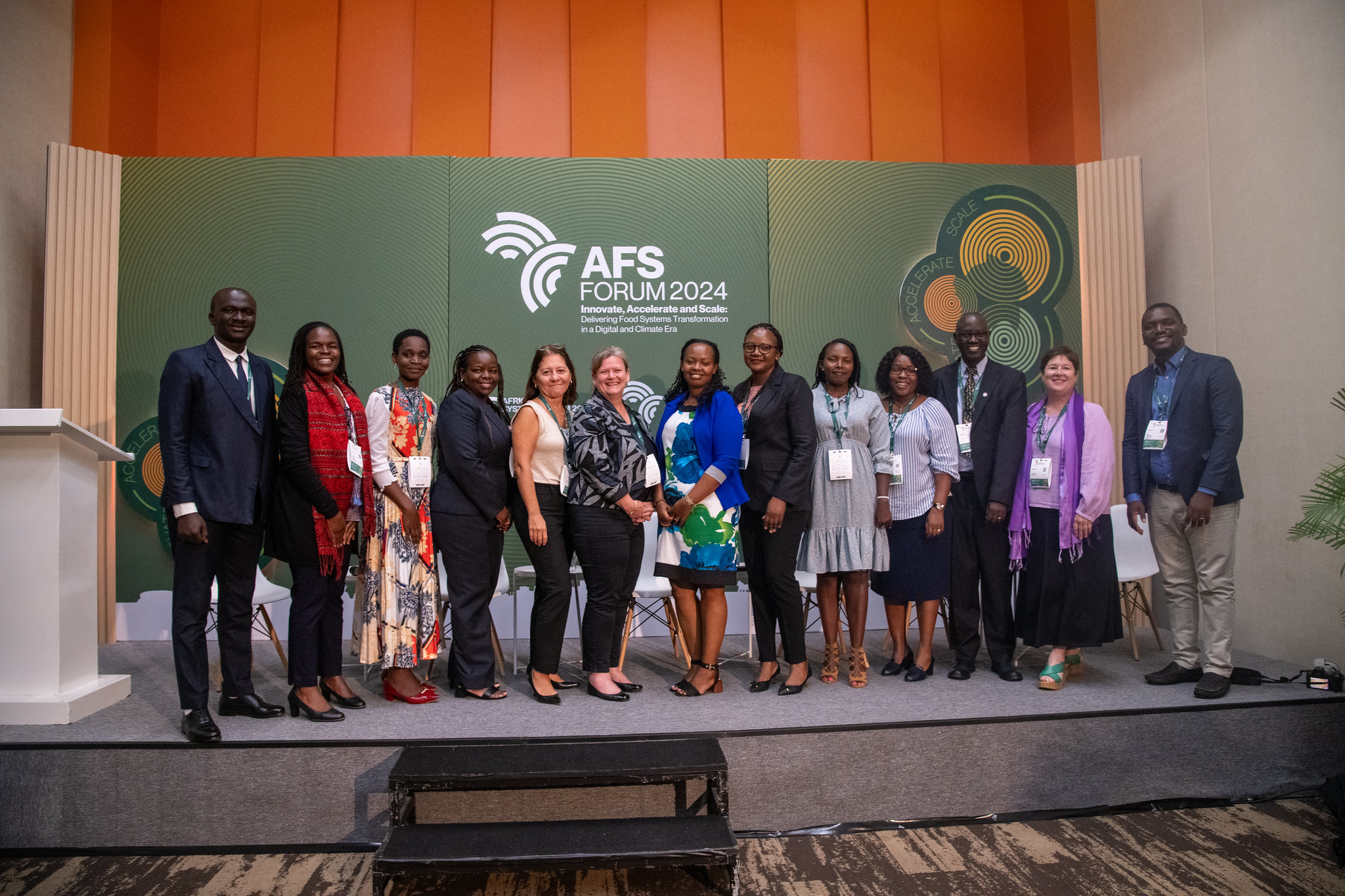
The speakers at the side event pose for a photo.
